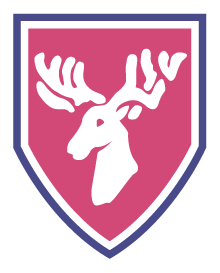Mathematics
At Carr Infant School, our intent in mathematics is to provide a rich and engaging curriculum that fosters a deep understanding of mathematical concepts.
We utilise the White Rose Maths framework and NCETM to ensure a structured and progressive approach to learning, enabling all children to build on their prior knowledge and develop their skills at a pace that suits them.
EYFS End Goals
In order to prepare children for the KS1 curriculum, we have clear EYFS end goals.
- Deep understanding of numbers to 10.
- Subitise up to 5.
- Automatic recall of number bonds to 5.
- Recall of number bonds to 10.
- Double facts within 10.
- Create and extend patterns
- Odd and even numbers
- Sharing a number equally
Disciplinary End Goals
Disciplinary knowledge refers to the ways of thinking, reasoning, and approaching problems in mathematics. This includes the processes and skills that enable students to apply their substantive knowledge.
- Problem-Solving: Using addition and subtraction to solve word problems or real-life scenarios.
- Reasoning: Explaining why a particular answer is correct or how they arrived at a solution.
- Making Connections: Relating different mathematical concepts, such as understanding how addition and subtraction are related (inverse operations).
Substantive Ultimate End Goals
By the end of their time here at Carr Infants, we want children to be competent in these key areas of maths to get them ready for Juniors.
- Recognise and identify numbers up to 100.
- Understand place value (e.g., 45 = 4 tens + 5 units).
- Know basic addition and subtraction facts within 20.
- Understand number bonds to 10 and 20.
- Count forwards and backwards in steps of 1, 2, 5, and 10.
- Recognise and form equal groups for multiplication.
- Divide objects into equal groups to represent division
- Recognise and find halves and quarters of shapes and objects.
- Compare fractions (e.g., 1/2 > 1/4).
How white Rose has been adapted
We do not just follow White rose blindly. We have adapted it by:
- Using the key headings-Quick response-chance to recap prior learning, In Focus (I do)- teachers sharing the lesson expectation and modelling the concept, Lets learn (We do)- children using white boards and pens to participate and engage in the new concept been taught (this is a key time for staff to assess the children's learning and support/adapt their reaching where appropriate), Guided Practice (You do)- time for the children to independently apply their learning.
- We use the powerpoints and representations to support our teaching and planning.
- We ensure that the ready to progress criteria is also taught and assessed half termly.
- We use the end of block assessments to inform our future planning and review key areas as required.
How we support all learners
We ensure that all children have the same ambitious end goals. However, we ‘go as quick as possible, yet as slow as necessary’.
We have established the essential knowledge that all children must secure by the end of each block and by the end of each year group. Where children have not secured this knowledge, we re-teach this before progressing and put interventions into place to support these key children.
We also have desirable knowledge which is part of the programme which we wish for all children who are on track to secure.
Lessons are adapted to meet the needs of all learners. This is adaptations of the tasks to ensure that the same ambitious learning objectives are secured.
Assessment
- Assessment for Learning – Using end of unit assessments, and ongoing assessments to adapt teaching.
- Assessment as learning – using powerful problems and quick response opportunities as an opportunity for children to recall/reinforce learning.
- Assessment of learning – End of block assessments which feed into summative assessments.
Culture - how do we get the best from pupils
In Maths, we establish an ambitious culture for pupils as Mathematicians:
- Curriculum being delivered equally for all pupils
- Curriculum is not narrowed
We enrich Maths by:
- Offering Maths lunch clubs
- After-school Maths clubs
- Maths Weeks
Timetables - how much/when
Maths is taught every term of the year. In KS1 Maths is taught every day. In EYFS, Maths inputs happen 4 times a week. However, Maths opportunities are always developed and enhanced through children’s play and in areas of provision. This is sufficient time to enable children to reach their ambitious end goals.
